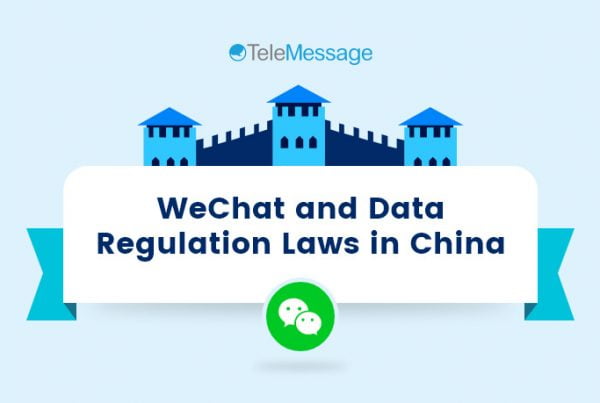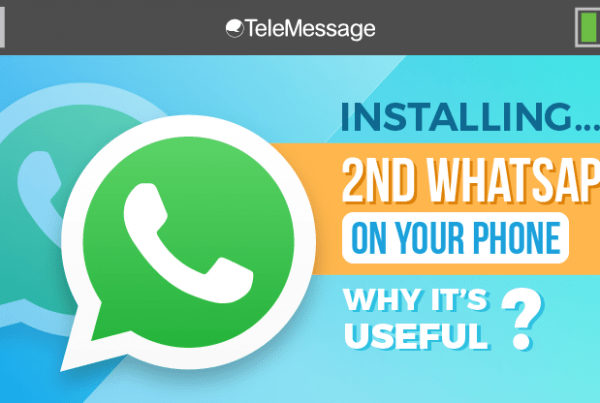Technological progress is relentless. Even though such advancements are aimed at making our lives easier, they can also complicate our routine activites, such as how we communicate. Mobile messaging applications like WhatsApp, WeChat, Signal, and Telegram help us to make conversations using words, pictures, and emoticons that are potentially more efficient and easier than a voice call. But are we sacrificing anything for the sake of convenience? Let us find out.

With the explosion in data communication, privacy is an ever-growing concern. People share their most valuable memories and moments through their mobile chat applications. So the importance of data privacy while using such applications is self-explanatory.
WhatsApp, Signal, and Telegram are free for download in the App Store and Google Play and share similar features, allowing you to share text, voice, picture, and video messages. Of these mobile instant messaging (IM) application, WhatsApp is the global leader, with more than two billion messages sent every month.
Separately, the Telegram broadcast channel is a feature that is favorite for many. It is, in a way, similar to group chats, with only the admin will have the right to post in channels. This is a very efficient way when you have to share information with a large group of audience.
Signal which was rolled out in 2014 gained its current popularity but it (and to a lesser extent Telegram) only recently gained massive interest following the WhatsApp’s privacy policy update at the beginning of this year.
All these IM apps are subject to data security issues, including that of end-to-end encryption: whether your sent messages are encrypted at the time of transmission and then decrypted when received by the intended recipient – ensuring that neither the application nor anyone else is able to read your conversations. Evolving governmental policies and increasing demands from privacy advocates constantly push companies to offer better privacy for users.
All messages sent and received through WhatsApp are end-to-end encrypted by default, though not the conversation-related metadata, allowing WhatsApp to access it. WhatsApp does not store your chats or calls in any way but can access and view details like your call logs, call duration, location details (from your network service provider). The transparency report released by WhatsApp specifies the information that the app collects from its users.
Even though Telegram offers end-to-end encryption for its users, this feature is not a default setting, requiring you to activate the ‘Start Secret Chat’ to start an encrypted chat with your contact. You will have to turn on this feature for every contact with whom you wish to have encrypted chats. The encrypted chats in Telegram are secured by the company’s own MTProto 2.0 protocol, and it is open-source on the client-side, making it more transparent. Like WhatsApp, Telegram also does not encrypt the metadata of your conversations. The user information that Telegram collects is only basic in nature.
Signal is a newer mobile IM application than WhatsApp and Telegram, and it is run by a non-profit organization, with a default end-to-end encryption. Signal also encrypts conversation metadata. Signal makes their application code available for public scrutiny and it releases a transparency report to help users understand what information the app collects from them (Read our previous blog to find out the kind of information that popular mobile messaging apps keep about their users and the best practices to adopt for secure instant messaging). Thus with respect to user security and privacy, Signal is the winner. But, this does not necessarily mean that WhatsApp and Telegram are insecure chat applications.
Financial regulators require financial firms to capture, monitor, and archive employee conversations that take place in any sort of communication channel. The ephemeral messaging feature provided by modern mobile IM applications is a pain point for almost all financial firms. Using such IM applications, employees can delete or keep hidden their conversations and causing their employers to be non-compliant, as regulators require every communication relating to a business to be captured and archived.
TeleMesage allows financial firms the freedom of using mobile chat applications while ensuring regulatory compliance. The recording and archiving solutions provided by TeleMessage helps regulated firms capture and archive employee conversations made through popular mobile messaging applications. The tool help firms perform activities like WhatsApp recording, Whatsapp archiving, WeChat recording, and WeChat archiving. TeleMessage is also in the process of launching Signal archiving and Telegram archiving tools for offering a secure mobile messaging experience for employees working in regulated firms.
About TeleMessage
TeleMessage captures and retains mobile content, including mobile SMS messages, voice calls, and WhatsApp and WeChat conversations from corporate or BYOD mobile phones to ensure compliance with various data preservation regulations. The messages are securely and reliably retained within TeleMessage servers or forwarded to your choice of archiving data storage vendor.
Our mobile archiving products securely record content from mobile carriers and mobile devices for various ownership models (BYOD, CYOD, and employer-issued). With our multiple archiving solutions, you can always find the right tools or blend for your requirements:
- Network Archiver
- Enterprise Number Archiver
- Android Archiver
- WhatsApp Archiver
- WeChat Archiver
- Signal Archiver
- Telegram Archiver
TeleMessage offers cross-carrier and international mobile text & calls archiving for corporate and BYOD phones. Visit our website at www.telemessage.com to learn more about our mobile archiving products.



